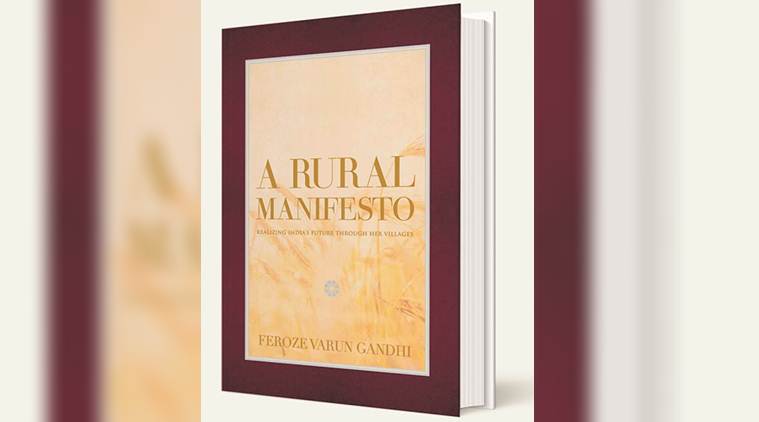Written by Harish Damodaran |Published: January 19, 2019 1:02:55 am
From the farms and fields
An important treatise on the predicament of Indian farmers and how to contextualise their distress

One of the demands of farmer organisations holding protest marches, including the one held recently in the national capital, has been for a special session of Parliament to discuss agrarian issues. Feroze Varun Gandhi is a rare Member of Parliament, that too from the ruling BJP, who has found it more worthwhile to engage in a “national conversation” on rural distress than on building a Ram Mandir in Ayodhya or criminalising instant triple talaq.
The noteworthy part about his present book is its sensitivity to the subject: “Farmers now need more courage to live than to kill themselves… Categorising their suicide as ‘killing themselves’ is a misnomer. They are simply defeated by the long, hard struggle to stay alive.” And this feeling is seemingly derived from personal engagement as an elected representative: “Travelling through the sullen bylanes of suicide-stricken villages in Bijnor, Bahraich, Kheri, Pratapgarh, Aligarh and Sitapur is a humbling and disconcerting experience.”
The timing of A Rural Manifesto, too, is impeccable — hardly 3-4 months before national elections, where the main campaign issue, whether or not Gandhi’s own party’s top leadership likes it, is going to be the crisis in farming and the wider rural economy.
Gandhi’s basic diagnosis of the problem is right. India’s agricultural strategy in the post-Green Revolution era has largely been to raise per-acre crop productivity through planting of high-yielding varieties, while keeping the cost of inputs (fertilisers, seed, diesel, power and credit) low via state subsidies and guaranteeing returns by undertaking minimum support price (MSP)-based procurement. This strategy has, however, proved unsustainable in the last two decades, with a marked shift in government policies towards containment of fiscal deficits and liberalisation of imports. Indian agriculture is, therefore, “increasingly exposed to market signals that it hasn’t been prepared for.”
The brunt of this policy and market-driven uncertainty has, of course, been borne by small and marginal farmers. They have limited access to formal institutional credit for procuring inputs (leading to overdependence on the moneylender, who also supplies them seed, fertiliser and pesticide), markets (most farmers lack the wherewithal to wait for better prices or even take their produce to mandis, and are forced to sell to village-level aggregators who are often the same financiers-cum-input dealers) and agricultural extension services. It is even worse for tenant farmers, who till land taken on informal lease. Bereft of any legal status, they cannot avail of subsidised credit, crop insurance, MSP, loan waivers and other state benefits extended to “regular” farmers.
The solutions Gandhi proposes are sensible and straightforward. First, we need to promote Farmer Producer Organisations (FPOs). These can help farmers gain better bargaining power, both when it comes to sale of produce and purchase of inputs.










.png)











No hay comentarios:
Publicar un comentario